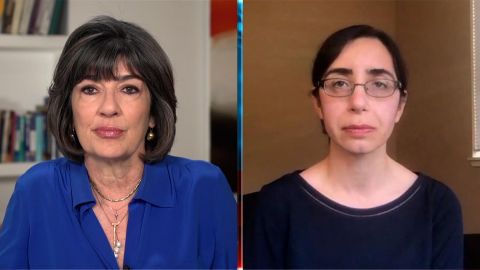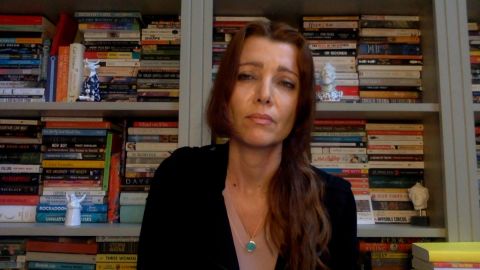Read Transcript EXPAND
ROYA BEHESHTI, FRIEND OF MARYAM MIRZAKHANI: Yes. So, I met Maryam when we started the sixth grade, that was the beginning of middle school. And we became close friends immediately and we stayed close friends throughout high school, college and then here in the U.S. And we were at this special school for talented students, for, you know, talented women. It was an all-girls’ school, K-12 education is gender segregated in Iran. And the principal of the school was a very strong woman who was determined to educate successful women through this school, and the environment was very encouraging for people, for the students who wanted to do math or science.
AMANPOUR: Maryam herself said that her first love was books, was reading, was literature. She thought she might want to be a novelist. What was it that turned her from literature to mathematics?
BEHESHTI: Well, when we met first, she was not particularly interested in math. So, in the first year, she was not doing particularly well in math and she was a little bit frustrated. But after the summer break, in the 7th grade when she became back, she suddenly got very excited about math and she started to do very well. And then we started to share the passion of loving math and doing math together.
AMANPOUR: You have said about her that we lived math, we read math, we ate math, we slept math. It was all math all the time. And you’ve described how you both loved it and how particularly Maryam loved it.
BEHESHTI: Right. It was absolutely great to work with Maryam. She had such a beautiful mind, such a beautiful way of thinking about math, very, very original person. I have, of course, talked to a lot of mathematicians, I have never seen the amount of passion that she had for math in other people. It was really unique and she was extremely energetic and positive. I felt very energized from the beginning until the very end when I talked to her about anything related to math, I really felt energized, even when she was — you know, later when she got sick. So, she had a unique personality in terms of her love for math.
AMANPOUR: And that these great pictures in the documentary which show her basically on the floor with these big pieces of paper and she’s got all her diagrams and all annotated. And at one point, her daughter, Anahita, said, oh, mommy’s painting again.
BEHESHTI: Yes. This is like very different from probably what people hear, imagine about Iran. When we were growing up, women doing math, engineering (INAUDIBLE), it was never regarded negatively. There were many women. And the case of Maryam was unique in the case — in the sense that her level — the level of her accomplishments was absolutely unique. We didn’t have anyone like her. But there were many other women who were doing well.
About This Episode EXPAND
Israel’s Labor Party leader Merav Michaeli discusses her country’s election. Turkish novelist discusses femicide and misogynistic violence. Derek DelGaudio explains his journey from card cheat to illusionist. Roya Beheshti reflects on the legacy of her late friend, mathematician Maryam Mirzakhani, who was the first woman and Iranian to win the Fields Medal in 2014.
LEARN MORE



